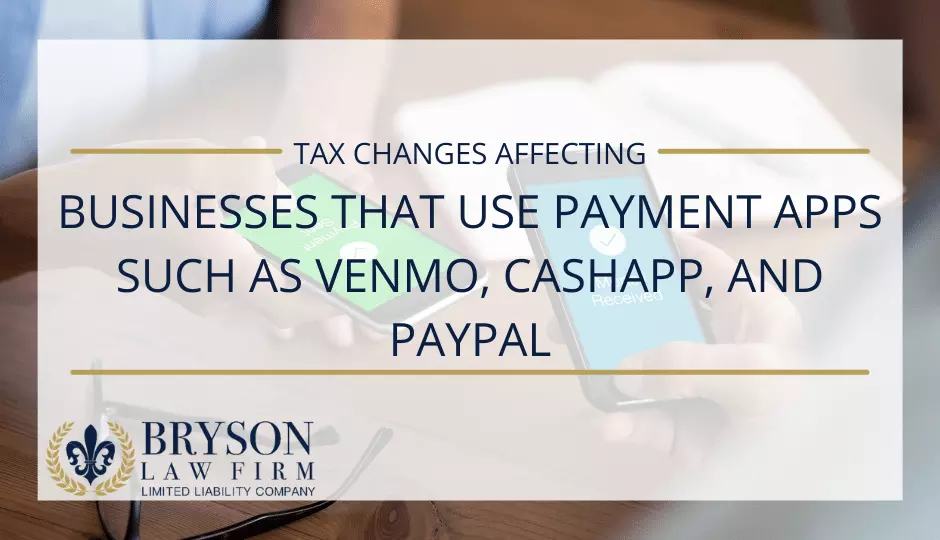Millions of people use payment apps like Venmo, CashApp, PayPal, etc. to send money and make payments. If you are using these apps to receive payment for your business, you could be affected by a tax change coming in the new year.
If you use a peer-to-peer (P2P) payment app like Venmo, PayPal, CashApp, Stripe, etc. for your business, there are some tax considerations to keep in mind. Starting in January, payment apps will have to report to the IRS transactions more than $600 per year sent as a “business transaction” which is defined as accepting payment for goods or services. Previously, the apps only needed to report transactions to the IRS if a user had over 200 business transactions in a year and those totaled over $20,000.
Generally, sending money to your friend to reimburse them for your half of dinner via P2P apps is seen as a personal payment and does not typically create a taxable event. However, if you’re using one of these apps to accept payment for your business, tax implications are involved.
Whether reported to the IRS or not, if you receive payment for the sale of goods or services, you have an obligation to ensure that payment is reported as income. To mitigate unreported taxable income, the IRS is now requiring that these P2P payment platforms provide the IRS with transaction information. The IRS will now have better visibility into business income transactions which they hope will ensure compliance. The only people that will truly be affected by this change are those who were not reporting all their business income voluntarily (without an IRS Form 1099-K issued) previously.
Here are the mechanics under this new rule - once you pass this threshold, the P2P vendor will issue you with an IRS Form 1099-K sent via the payment platform and to the IRS. If you do not receive a Form 1099-K, remember, you are still responsible for reporting taxable income you received through the app.
There is a potential issue here with this new rule. Depending on how money is sent through these apps, you could end up being sent a 1099 for a nontaxable event. If that happens, you’ll have to explain to the IRS that the 1099 you received was for a non-taxable transaction.
We recommend that businesses connect with their Tax Professional prior to the end of the year this year to ensure they’re all set for success for the 2022 tax year. Need help? Contact us!
Stay up to date on IRS news with our weekly blog and social media pages. Our offices in Lafayette, Shreveport, Baton Rouge, Covington, New Orleans, Metairie, Houston, and Austin are here to help your tax needs. Contact us today to schedule a free consultation!























